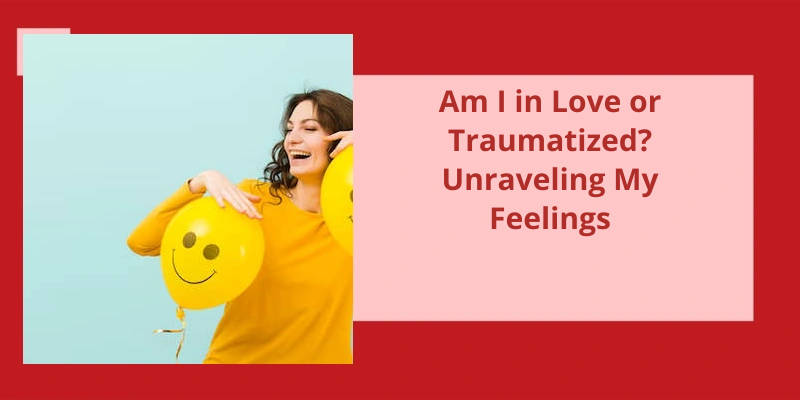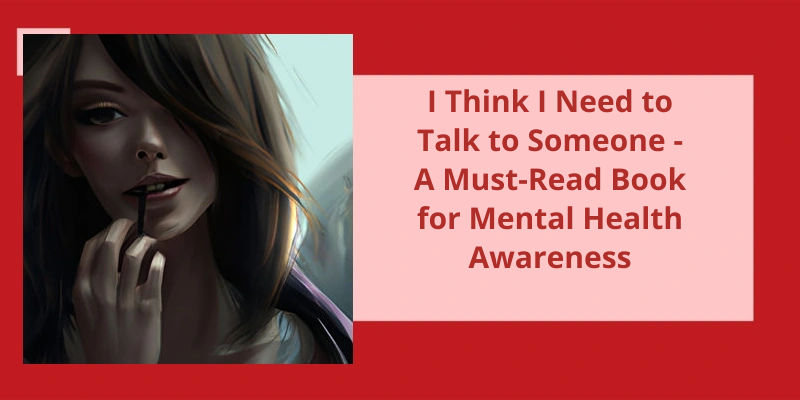"Am I in Love or Traumatized? Unraveling my Feelings" delves into the complexities of discerning between genuine love and the emotional consequences of trauma. It isn’t uncommon for individuals to find themselves questioning their feelings, particularly when the lines between affection and traumatic attachment become blurred. Love bombing, a manipulative tactic often employed by narcissists and abusers, can instill a sense of intense devotion that can be easily confused as genuine love. Similarly, trauma bonds, borne out of fear and manipulation, can create an illusion of love that can leave individuals grappling with their emotions. This article aims to shed light on the crucial difference between trauma bonds and authentic love, helping readers navigate their own experiences and unravel the intricacies of their emotions.
How Does Trauma Affect Love?
Trauma can have a profound impact on ones ability to experience and navigate love. Whether the trauma was physical, sexual, or emotional, it can manifest in a variety of relationship issues. Survivors often carry deep-rooted beliefs that nobody can truly be trusted, that intimacy is dangerous, and that forming a genuine, loving attachment is an unattainable fantasy.
When someone has experienced trauma, their sense of safety and security is profoundly disrupted. They may constantly be on guard, hypervigilant for signs of danger. This hyperarousal can make it challenging for individuals to truly let their guard down and fully open themselves up to love. Subconsciously, they may feel that being vulnerable will put them at risk of experiencing further pain and harm.
Additionally, trauma survivors may struggle with establishing healthy boundaries in relationships. They may find it difficult to recognize and assert their own needs and desires, or conversely, they may become overly controlling as a means of protecting themselves. This lack of balance can strain relationships and hinder the development of a secure and loving connection.
Furthermore, trauma can affect ones ability to trust. Survivors may harbor deep-seated mistrust due to their past experiences. They may question others motives, constantly searching for signs that they too may cause harm. This mistrust can impede the development of intimate relationships, as being vulnerable requires a level of trust and faith in ones partner.
Lastly, trauma can impact ones self-worth and self-esteem. Survivors may blame themselves for what they went through, leading to feelings of shame and inadequacy. This negative self-perception can make it difficult to believe that they deserve love, affection, and happiness. They may unintentionally sabotage relationships or settle for unhealthy dynamics, perpetuating a cycle of further trauma and pain.
Seeking therapy or counseling can provide a safe space to process and heal from past traumas, allowing individuals to embrace healthy and fulfilling relationships. With support and self-work, survivors can learn to redefine love, dismantle their inner barriers, and create the possibility of experiencing genuine and healing connections.
This can manifest through constant worry, hypervigilance, or even a sense of impending doom. These feelings may arise due to past traumas, such as previous abusive relationships or childhood experiences. Understanding the signs of relationship trauma can help individuals address and heal from these wounds, fostering healthier connections in the future.
Do I Have Love Trauma?
Do I’ve love trauma? Signs of Relationship Trauma
They can be incredibly distressing and cause a person to feel as if they’re reliving an event. These intrusions may be repetitive and unwanted. It’s essential to comprehend the signs of love trauma to understand whether or not you’re experiencing it. One common symptom of love trauma is the inability to trust or form close relationships. This can lead to feelings of isolation and loneliness, as it becomes difficult to connect with others on an emotional level.
Feelings of fear or distress also play a significant role in love trauma. A person may experience anger, fear, stress, or anxiety in the relationship. These emotions can be triggered by specific events or even by the mere thought of the relationship. This constant state of distress can have severe consequences on a persons mental and emotional well-being.
People who’ve experienced relationship trauma may hold onto negative emotions, resentments, and grudges. This can make it challenging to move on from the trauma and heal from it effectively. Constantly dwelling on past experiences can hinder personal growth and prevent the formation of healthy relationships in the future.
These intrusive thoughts can intrude on a persons daily life, making it difficult to focus or concentrate on anything else. It’s not uncommon for individuals with love trauma to constantly replay the hurtful events in their minds, which can be incredibly distressing.
People who’ve experienced trauma in relationships may experience physical symptoms such as headaches, nausea, sleep disturbances, or fatigue.
If you suspect that you may be experiencing love trauma, seeking support from a therapist or counselor can be beneficial in helping you heal and move forward.
Treatment Options for Love Trauma: This Topic Could Discuss the Various Therapeutic Approaches and Techniques That Can Be Helpful in Healing From Love Trauma, Such as Cognitive-Behavioral Therapy, EMDR, or Somatic Experiencing.
- Cognitive-behavioral therapy
- EMDR (Eye Movement Desensitization and Reprocessing)
- Somatic experiencing
- Psychodynamic therapy
- Group therapy
- Medication management
- Mindfulness-based techniques
- Art therapy
- Expressive writing
- Support groups
Source: Relationship Trauma: Signs, Causes, How to Heal
Trauma love, also known as a trauma bond, is a complex emotional connection that forms in abusive relationships. It’s characterized by a distorted sense of attachment and intimacy, where individuals mistakenly believe they’ve found true love despite the toxicity and harm present in the relationship. These bonds can be incredibly powerful, leading to a cycle of attachment and detachment that’s difficult to break free from. Understanding the dynamics of trauma love is crucial in order to recognize and address such destructive patterns.
What Is Trauma Love?
Trauma love or the concept of a trauma bond refers to the deep emotional connection that can form between two individuals who’ve been in an abusive relationship. It’s a complex phenomenon where surface-level feelings of attachment and intimacy coexist with the underlying toxicity and harm of the relationship. In essence, it’s the belief in true love or connection despite the evident distress and harm caused by the abusive cycle.
The bond is reinforced by intermittent periods of respite, where the abuser may show remorse or kindness, creating a false sense of security and hope for a better future. This constant push and pull creates a confusing and addictive dynamic, making it challenging for the victim to break free from the toxic relationship.
Understanding the distinction between love and trauma when in an abusive relationship is crucial for personal growth and healing. Seeking professional help, such as therapy, can provide valuable insights and guidance in unraveling these emotions. Recognizing the signs of a trauma bond and having the strength to break free from the cycle is the first step towards reclaiming ones emotional well-being and finding true, healthy love.
Breaking the Trauma Bond: Strategies and Techniques for Breaking Free From an Abusive Relationship and Healing From the Trauma Bond.
- Recognize the signs of an abusive relationship
- Seek support from friends, family, or a counselor
- Educate yourself about the trauma bond
- Set boundaries and assert your needs
- Develop a safety plan
- Practice self-care and self-compassion
- Engage in healing activities such as therapy or support groups
- Build a strong support network
- Focus on healing and rebuilding your life
- Avoid contact with the abuser
- Be patient with yourself and the healing process
- Document abusive incidents and seek legal assistance if necessary
- Keep a journal to process your emotions and experiences
- Practice mindfulness and grounding techniques
When these core beliefs are deeply ingrained due to trauma, they can impact your ability to genuinely experience and trust love. Consequently, the question arises: can trauma cause you to not feel love? This article aims to delve into the complex relationship between trauma and your ability to feel love, exploring the psychological and emotional effects that traumatic experiences can have on your perception of love and relationships.
Can Trauma Cause You to Not Feel Love?
Throughout life, many of us grapple with the question of whether we’re truly capable of feeling and experiencing love. This internal battle becomes even more complex when trauma enters the picture, leaving it’s indelible mark on our emotional landscape. Can trauma cause you to not feel love? The answer is a resounding yes. When you’ve endured negative childhood experiences characterized by neglect or abuse, it can shape a core belief that your authentic self is inherently flawed or damaged. As a result, even when surrounded by love, you may struggle to fully internalize it and feel unloved despite being loved.
Moreover, trauma can create a profound disconnection from our own emotions, leaving us feeling numb or detached. When you’ve experienced trauma, the overwhelming pain and distress can cause your brain to shut down as a protective mechanism. Unfortunately, this response can also dampen your ability to fully engage in intimate and loving relationships. It becomes a struggle to access and experience emotions freely, which may lead to confusion and uncertainty about your own capacity to love and be loved.
Addressing and healing from trauma is a vital step towards reestablishing your ability to experience and embrace love. This process often involves therapy, where you can explore and unearth the root causes of your emotional challenges. Through therapy, you can challenge and reframe the negative beliefs that trauma may have instilled in you. With time, patience, and self-compassion, it’s possible to reconnect with your true self, cultivate a strong sense of self-worth, and ultimately, open yourself up to giving and receiving love in a healthier and more fulfilling way.
Conclusion
While the resemblance may exist, it’s important to acknowledge that trauma bonds are rooted in fear, not love. Love involves genuine care, support, and growth, while trauma bonds tend to manipulate, control, and instill a sense of dread.






